#IWASTHERE
Mehvish is making business work for beauticians
Makeovers at home, Mehvish’s new business model for the beauty industry in Pakistan, is improving lives for previously exploited women.
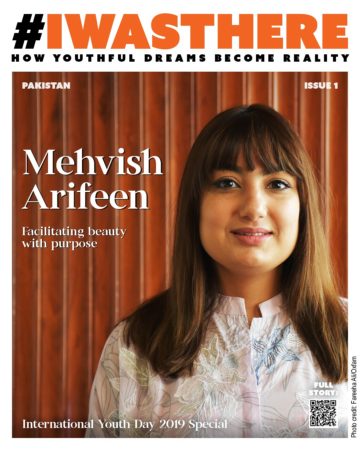
Beauty parlours may not seem the obvious place to revolutionise employment practices for women, but a young entrepreneur in Pakistan realised that some changes within the industry could provide a way for women to link directly with their clients and avoid the exploitation of working in salons.
The spur to get started
Five years ago, Mehvish Arifeen was a fresh Master’s graduate working in the social development sector, in areas of financial inclusion and flood relief. Then, in 2016, she participated in a start-up competition, organised by Oxfam’s Empower Youth for Work (EYW) partner, The Indus Entrepreneurs (TiE). Her idea of decentralising beauty services to empower women won third prize, following which she and three co-founders launched their start-up ‘GharPar’ (meaning ‘At home’) in Lahore, the hub of economic activity in Pakistan.
Changing ugly work practices
“The beauty parlour industry is exploitative, and because women workers lack awareness about their rights, they pose little to no resistance to unfair work policies,” says Mehvish, who is now GharPar’s Chief Operations Officer. The social enterprise provides an alternative to working in beauty parlours – a convenient and professional at-home beauty service for women. It connects beauticians from suburban areas with well-to-do clients, through a web and mobile phone-based platform, which is a route into work not previously available to the women.
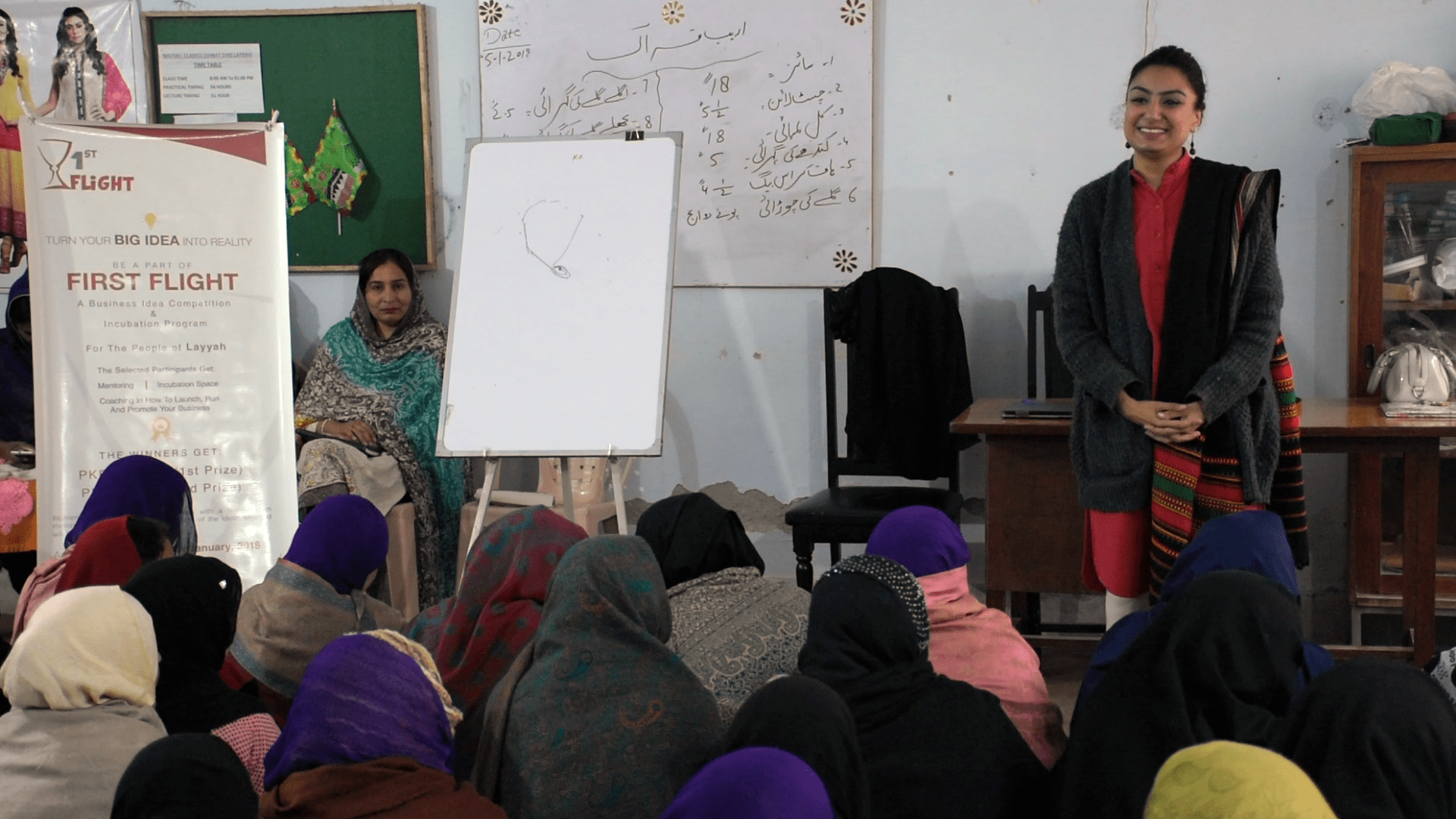
Improving the beauty business
The average take-home pay of a GharPar beautician is four times that of a beautician working in a bricks-and-mortar salon. To help these beauticians improve their service, ‘GharPar’ offers a range of training sessions intended to build their capacity for work, while also teaching them good work ethics. “We at GharPar recognize the difficulties faced by women workers who belong to low-income families; most of them are widowed or divorced and have to fend for themselves and their children,” Mehvish explains. The training is designed to fill the gaps in their skills and knowledge so they become a confident work force.
Creating beautiful solutions
When women from tight-knit communities, such as those around Lahore, leave their homes for work, they face two particular barriers: security concerns and backlash from the family and community, who question their motives behind leaving the comforts of home in favour of the market place. Over time, Mehvish and her co-founders have developed a close relationship with their employees and noted the problems they face on a daily basis. “Our model is a constantly evolving one,” she says. “For instance, seeing that mobility was an issue for these beauticians, we decided to create a solution whereby beauticians would go directly from their homes to the home of the client with a guardian.”
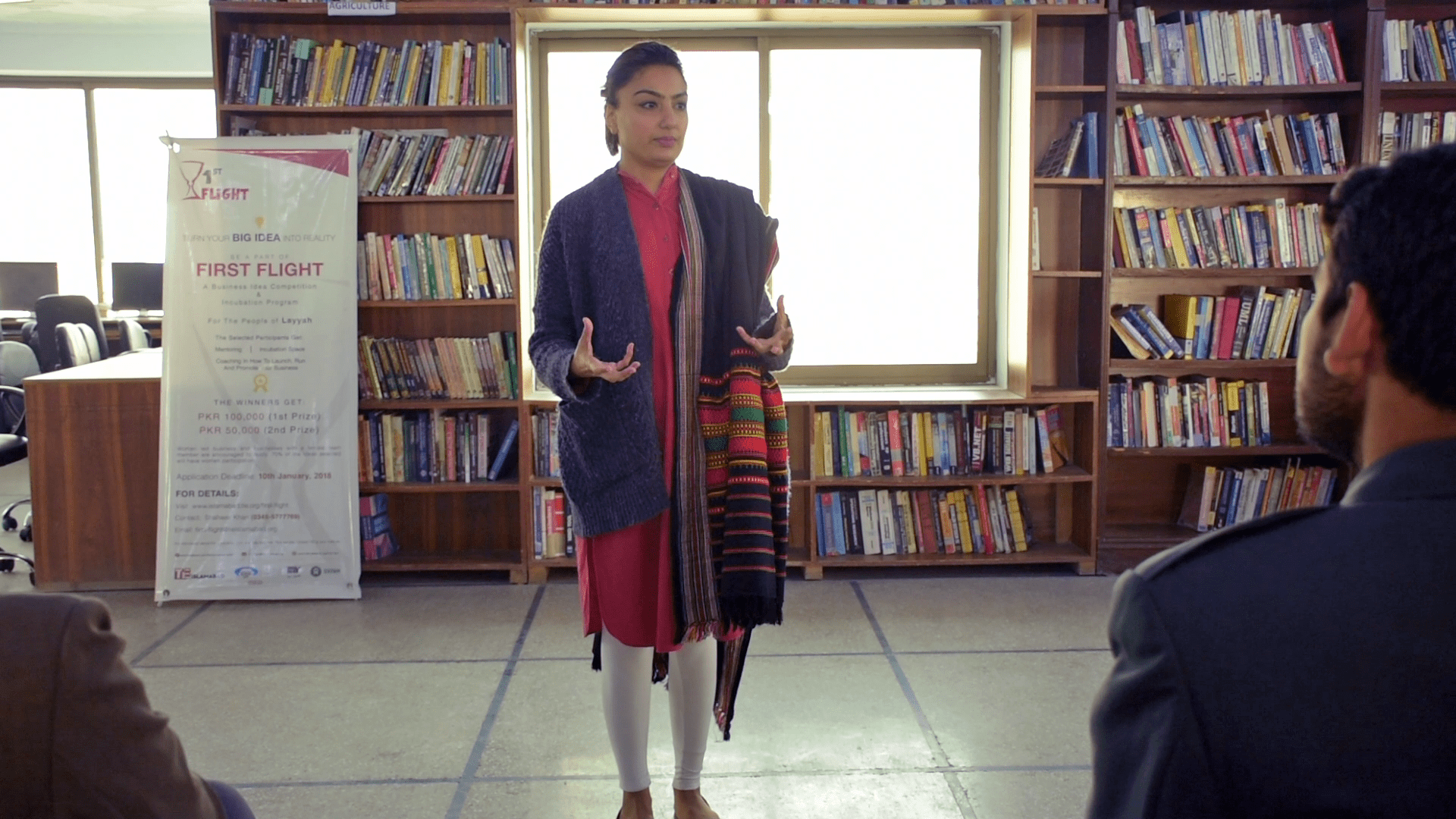
The skills for success
GharPar’s mission is to get as many unemployed beauticians on board as possible, and to create lucrative employment opportunities for these, often underemployed, women across Pakistan. “I’ve even seen cases where, owing to lack of financial literacy and access to markets, women run parlours in their communities at a loss,” Mehvish says, raising another concern. “Through our platform, they can earn the extra cash that they need to run salons in their communities and to save enough to contribute towards the household.”
Where next?
Today, Mehvish and her business partners have expanded their operations to the capital, Islamabad, and they plan to move into Faisalabad as well. Eventually, they want to go national, bringing high-quality beauty services into homes wherever they are needed, and providing a secure income for thousands of women.
Mehvish‘s story is part of the multiyear campaign, kicked off on International Youth Day 2019 by the Empower Youth for Work program and the Work in Progress! alliance. The campaign aims to support the national influencing work of the respective programs by joining forces with local role models. The ripples of #Iwasthere are spreading out around the world and these stories are proof that change can happen anywhere – we hope they will inspire you, too, to become an active citizen.
Why these stories?
There are more young people today than ever before in the history of the world; 1.8 billion people between the ages of 10 and 24 worldwide, and 90% of them live in low-income countries. . Harnessing the energy and strength of young women and men to become active citizens is core to Oxfam's goal of transformational change.
With their energy, skills and creativity, young people have the potential to be the driving force for social change, strong economies and vibrant democracies.
Oxfam is working jointly with youth to challenge barriers that prevent them from
Enjoying their rights
Participating fully in society
Being an effective voice in decision-making processes
How youthful dreams become reality.
These stories are proof that change can happen anywhere -
to inspire you to become an active citizen.
- Bangladesh
- Ethiopia
- Indonesia
- Italy
- Nigeria
- Pakistan
- Peru
- Somalia
- The Netherlands
-
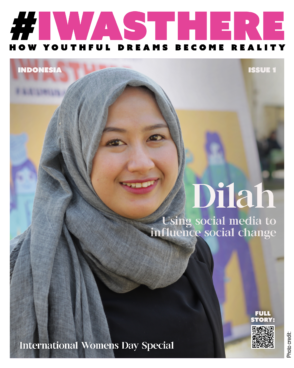
Dilah
“Development is more than just economy or infrastructure, it’s all about humans.”
-
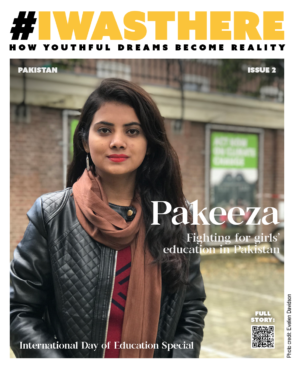
Pakeeza
“As activists, we have to be patient. Without patience we can’t do anything, we just struggle.”
-
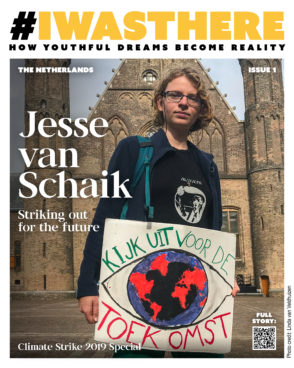
Jesse van Schaik
“I hope other people think ‘if she can do it, then I can do it, and then it won’t be that hard.’”
-
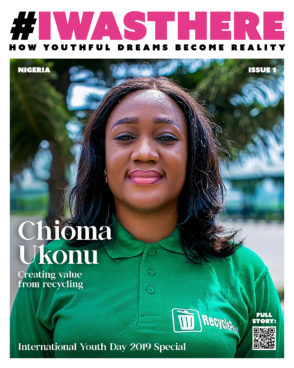
Chioma Ukonu
“Youths must work every day to be the change they want to see.”
-
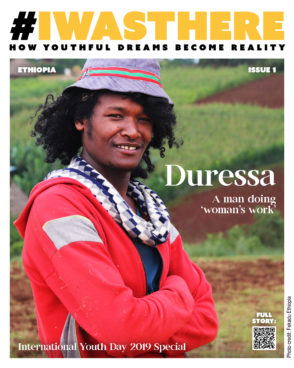
Duressa
“The only thing that I cannot do, is child bearing and breast feeding. This is not naturally gifted to men!”
-
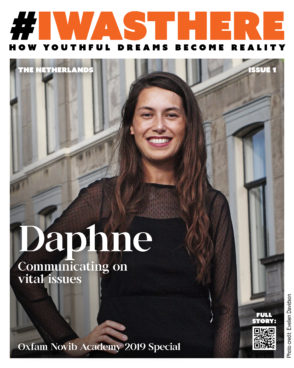
Daphne Rozenburg
“My goal was to capture the essence of the vital advocacy work that goes on within powerful institutions. But in a light and approachable way.”
-
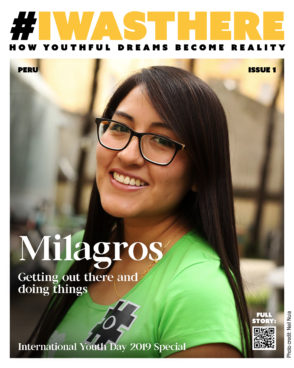
Milagros
“We are young, we are prepared. We have many things to do.”
-

Muzamil Ali
“The biggest challenge wasn’t informing them about modern farming techniques but persuading them to abandon outdated methods”
-

Nasrin
“Work is never defined for men and women, it is us who creates this differentiation. There are lots of people in rural areas who are not getting enough medical support, I want to do something more for their advancement by engaging the youth of our community.”
-
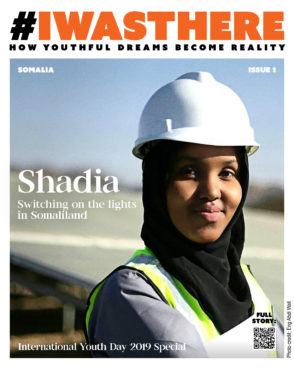
Shadia
“Fear is not part of my life. I conquer the fear itself.”
-
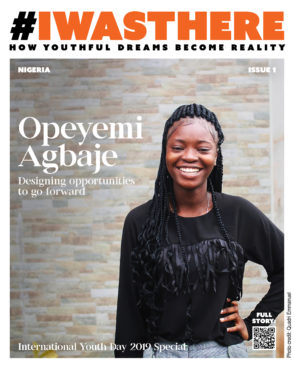
Opeyemi Agbaje
“I did not have any computer knowledge prior to this time; I only used computers for watching movies!”
-
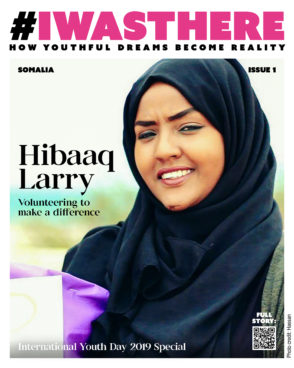
Hibaaq Larry
“We should create an environment where people can support one another and raise local funds together to buy clothes and food for poor children and mothers.”
-

Mr. Ajebo
“Work ethics and character are equally important as you cannot earn a living out of talent alone.”
-
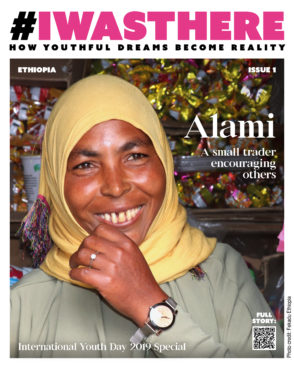
Alami
“I believe young women have the capacity to change their lives if they are provided with a safe environment and support from their family, community, and government.”
-

Alisha Khan
“Once we overcame our initial hurdles, we felt confident about managing more events, and soon established a good reputation in the city.”
-
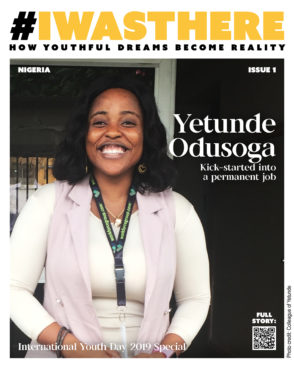
Yetunde Odusoga
“Even if a person supports you and teaches you how to do a thing, without passion on your part, it’s a ‘NO’!”
-
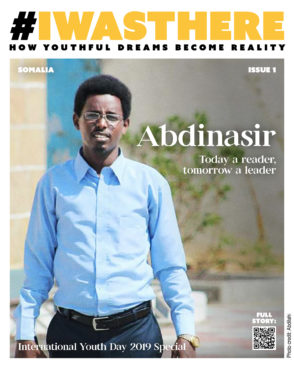
Abdinasir
“Without a book on my lap every day, I don’t know where I would have reached today. One day I will realize my dream of bringing all Sahil people into the library.”
-
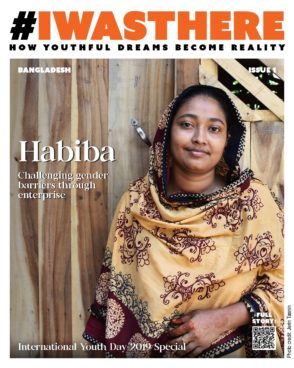
Habiba
Habiba believes that other women and girls will be inspired by seeing her at work.
-
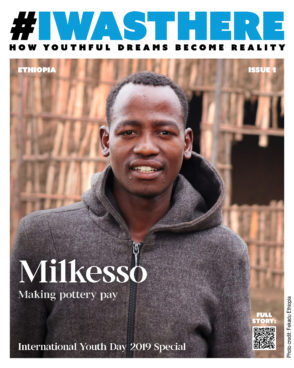
Milkesso
“Seeing my success, many people are now convinced it’s OK to assist women.”
-
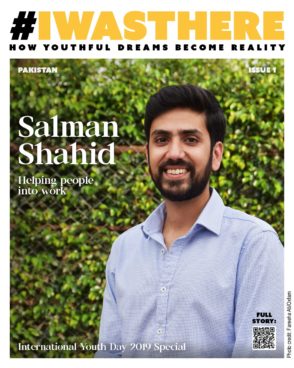
Salman Shahid
“We aim, one day, to scale up our start-up to a national level”
-
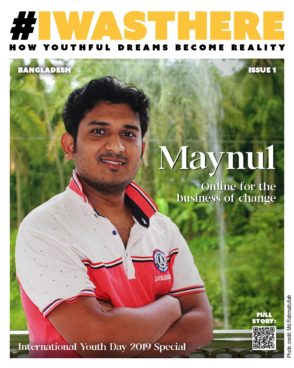
Maynul
He started working from home to save money, providing computer support to the community, especially women.
-
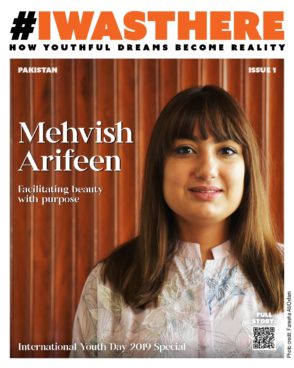
Mehvish Arifeen
“The beauty parlour industry is exploitative, and because women workers lack awareness about their rights, they pose little to no resistance to unfair work policies.”
-
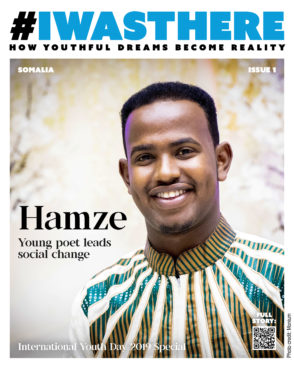
Hamze
“Poetry is art and expression, and has been in my blood since my childhood. If you want people to develop their country, young people are the starting point – they have the drive and stamina to pioneer changes”
-
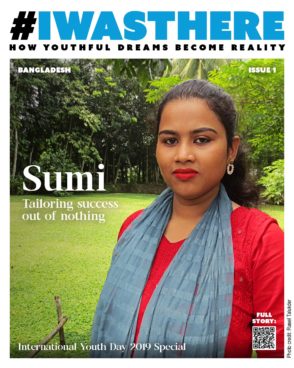
Sumi
To ensure the continued success of her business, she keeps up with the latest fashion trends online, adjusting them for the cultural and religious tastes of her clients.